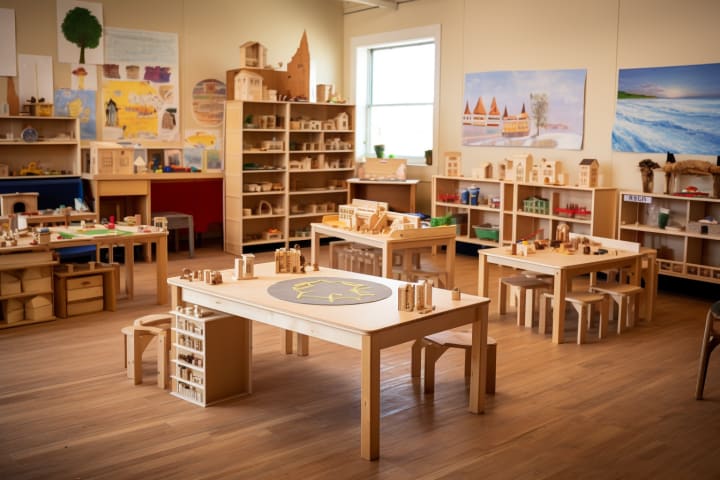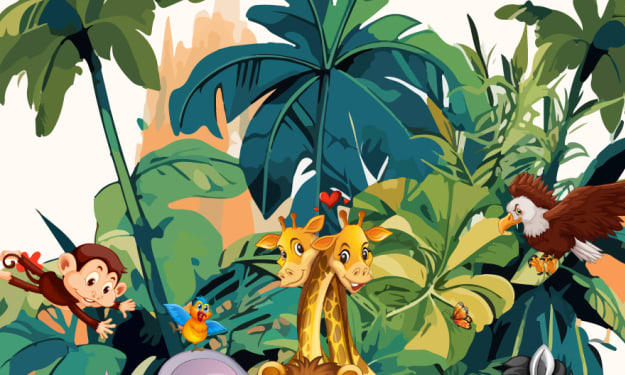Unlocking the Child's Inner Cosmos: A Journey Through the Montessori Galaxy
Feeding children's inner world to unfold external exploration.
In the midst of Montessori education is a profound regard for the child an individual. The late Dr. Montessori believed children are naturally hungry to learn and are adept at introducing learning within an environment that is supportive and thoughtfully designed surroundings. The Montessori philosophy is based on several key principles.
The Pillars of a Child-Centered Cosmos
In the midst of Montessori education is a profound regard for the child an individual. The late Dr. Montessori believed children are naturally hungry to learn and are adept at introducing learning within an environment that is supportive and thoughtfully designed surroundings. The Montessori philosophy was based on the following principles:
- Respect for the Child: Each child has the capacity to be the captain of their own path. Montessori schools offer the freedom to explore within carefully-crafted limits, encouraging the sense of self-worth, dignity as well as ownership of their education process.
- The Absorbent Mind: Young children effortlessly absorb information from their environment, a process Montessori likened to a sponge absorbing water. This period of intense mental activity allows children to learn rapidly and develop a deep connection to their surroundings.
- Sensitive Periods: As delicate blossoms bloom during specific times of the year the children are able to show signs that allow them to be open to specific types of education. Montessori teachers, who are the soft gardens of their minds are aware of these delicate periods and give the proper food to encourage optimal growth.
- Prepared Environment: Imagine a classroom transformed into an enchanting world of learning. Every corner, every shelf is carefully curated equipped with materials that are appropriate for development like math manipulatives which dance with small hands, sensory treasures that stimulate your senses and tools for language that turn alphabets into stepstones for reading.
Learning Takes Flight

The Montessori Method is a unique approach to education that is distinguished by the way it teaches and learns.
- Mixed Age Classrooms: In Montessori classrooms, age can be an arbitrary spectrum and not a obstacle. Students of all generations learn from them, forming the most vibrant web of mentorship as well as peer-learning. Older children become effective guides, while boys find encouragement and guidance from older peers.
- Role of the Educator: Montessori teachers are not teachers but facilitators. They observe, guide and gently nudge children toward self-discovery. They're the celestial cartographers helping kids explore the vast expanses of their knowledge by a soft gesture and a sparkle in their eyes.
- Self-Directed Learning: Self-direction is the fuel that powers the Montessori machine. The children choose the activities they want to engage in attracted by desire to learn. It helps develop not only the ability to learn, but important decision-making capabilities as well as a sense of responsibility of their education.
- Hands-On Learning: Montessori materials are designed to be engaging and encourage active, hands-on learning. These materials allow abstract concepts to be presented in a concrete, tangible form, making it easier for children to understand and internalize them.
Treasures for Curious Minds
A unique aspect of Montessori education is its specific set of educational materials, each designed with a purpose:
- Math Materials: The number rods, beads and bead chain turn into thrilling instruments, turning abstract ideas into real-world memories. Subtraction, addition, and even multiplication becomes tangible and can solve with little hands and a tense excitement.
- Sensorial Materials: From the soft touch of letters made from sandpaper to the enthralling the thumping of sound cylinders these tools sharpen the children's senses as well as increase their curiosity about the environment around them. The sounds, the textures and smells can be used as an important step on the road toward the development of cognitive skills.
- Language Materials: Learning to read and write is a fun dancing with moving alphabets and sandpaper alphabets. Words pop out of small fingers, and transform into keys to unlock the richest of knowledge and stories.
- Practical Life Activities: Buttoning a coat, pouring water on, or making a meal These everyday chores provide opportunities for empowerment and self-reliance. and independence. where kids learn the practice of self-care, accountability and collaboration - all skills that eventually form the basis of social intelligence that guides children through their journey to.
Montessori at Home
Montessori methods can easily be introduced at home to encourage autonomy and enthusiasm for the process of learning throughout your day. Simple actions like creating an environment that is organized for your child, including children in the daily tasks of life as well as providing appropriate learning resources can make an enormous change.
Conclusion
Montessori Theory is more than an educational approach; it's an avenue to cultivate the child's enthusiasm to learn and respect of their personal development. Focusing on the whole child, the Montessori curriculum aims to create curious, self-sufficient and empathetic individuals, willing to be a part of the world in which they live.
In the classroom or in the home, the tenets in Montessori Theory offer a framework that nurtures children's minds in a manner that is in line with their natural developmental process, and ensures that learning experiences are enjoyable and rewarding as it is instructive. As an Montessori teacher I'm proud to have been a part of this revolutionary movement helping children become their best selves by providing an education that recognizes the unique talents and strengths of each child.
About the Creator
Maria Montessori
Welcome to a fusion of Montessori wisdom and storytelling! As an educator-turned-writer, I offer insights that transform teaching into an art. Dive into a world where nurturing the whole child is key. 🌟📚✨






Comments
Maria Montessori is not accepting comments at the moment
Want to show your support? Send them a one-off tip.